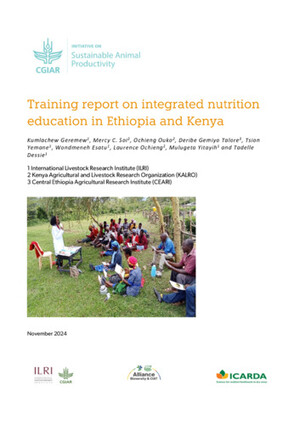
Gender roles and child nutrition in livestock production systems in developing countries: a critical review
Abstract
The study of gender issues in agricultural production has become an important subject of inquiry, even since questions were raised on whether women and men benefited equally from economic development. The focus of the debate and empirical research has primarily been on the role of women in crop production to the virtual exclusion of the role of gender (women, men and children) in livestock farming. This review is based on the limited amount of available literature which shows that specific participation of women, men and children in animal husbandry is significant and varies from region to region according to the traditional gender division of labour, other variables, the farming systems and the demographic and environmental factors. The objectives of this review are to examine the gender division of labour, access to resources and benefits from smallholder ruminant livestock production systems; to evaluate the effects of ruminant livestock production on the nutritional status of children and to present two case studies that critically examine how gender analysis was included in smallholder ruminant livestock research projects.
Citation
Tangka, F.; Jabbar, M.; Shapiro, B.I. 2000. Gender roles and child nutrition in livestock production systems in developing countries: a critical review. ILRI Socio-Economics and Policy Research Working Paper. no. 27. 64p. Nairobi (Kenya): ILRI.










